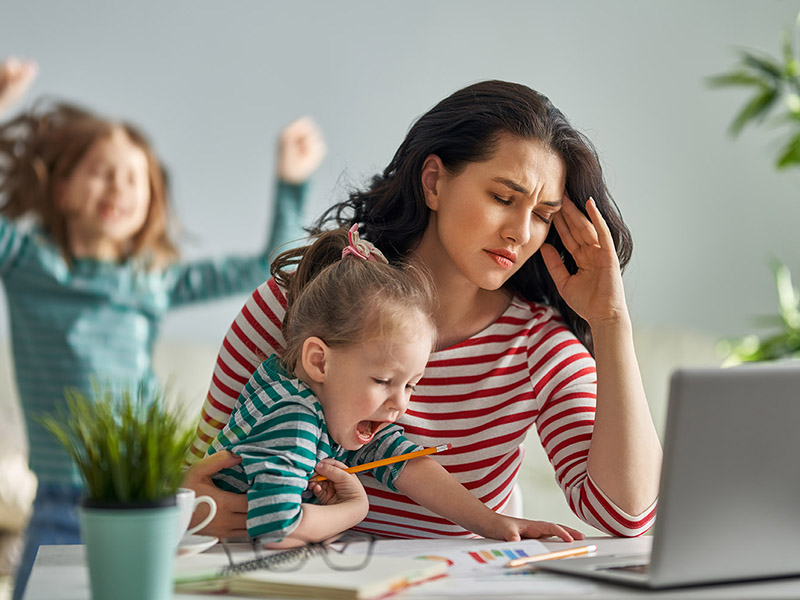Preserving Wealth – July 2020
Maximising investment returns over a longer life expectancy
There are lots of variables in retirement: how long people will live for, the costs of goods and services they will need, interest rates available on their accumulated savings, and so on. But once you have retired, investing is anything but straightforward.
One of the biggest threats to the health of your investments
The coronavirus (COVID-19) pandemic has had a dramatic effect on the global economy. Around the world, economic activity has dried up. Fewer consumers are buying and fewer companies are investing.
Staying invested and giving your money the greatest chance to grow
Perhaps the most common investment advice is to stay invested. But with markets being so volatile, the ease of sticking to that advice has been sorely tested in 2020. Even though we’ve seen global markets bounce sharply from their March lows, understandably there will still be those investing for retirement who remain worried and wonder what the best approach is for the remainder of the year and beyond.
It’s more important than ever to stay the course
The coronavirus (COVID-19) outbreak is first and foremost a human tragedy, affecting hundreds of thousands of people. It is also having a growing impact on the global economy. The markets have been extremely volatile as investors weigh the effect of the coronavirus against measures aimed at easing its economic impact. Therefore, it’s hard to say how this will affect investments in the short term.
Preparing ourselves for life to be really strange for some time
The only constant in life is change, which is why individual financial life planning should not be a one-off exercise. Reviewing your finances regularly is essential if you want to stay on track to meet your financial goals. Making sure your finances are in the best possible shape will also make sure you stay on course to achieving everything you want.
Developing a clear plan for your wealth and property
Whether you have earned your wealth, inherited it or made shrewd investments, you will want to ensure that as little of it as possible ends up in the hands of the taxman and that it can be enjoyed by you, your family and your intended beneficiaries.
Increased investor focus on environmental, social and governance considerations
Environmental, social, and governance (ESG) issues continue to be a priority for many investors. Your values define you. But do your investments reflect who you are?
How our retirement plans may change in response to the coronavirus pandemic
The coronavirus (COVID-19) pandemic has touched virtually every part of our lives and is having a widespread impact across all aspects of financial life, including retirement plans.
Ensure your future income will allow you to enjoy the lifestyle you want
Preparing for retirement is like getting ready for a journey – it never goes quite as planned. But the better the plan, the better the outcome. When things go wrong, you want to have the flexibility to adapt to changing circumstances. You never know what retirement will be like until you get there.
Impact on the nation’s wealth and financial security
It is becoming uncomfortably clear that while not everyone has been physically affected by coronavirus (COVID-19), every single one of us will be impacted financially. During the pandemic, savings and investments have been volatile, as have wages and jobs.
Living in a place where the lifestyle and cost of living matches your financial situation
Are you ready to spend your golden years in comfort, style and maybe even a bit of luxury? As a retiree, you’ll want to be able to live in a place where the lifestyle and cost of living matches your financial situation.
Women now earn the most in one-in-four households
The proportion of female breadwinners is steadily rising but the trend could be knocked off course by the coronavirus (COVID-19) crisis. Women out-earn male partners in almost a quarter of households, up from a fifth 16 years ago, according to new research.
Don’t let coronavirus derail your financial future
The COVID-19 pandemic has touched virtually every aspect of our lives, not least of which is how we save for retirement. And while the number one priority is keeping our families and ourselves safe and healthy, the next topic on most people’s worry list is the financial impact, especially if the situation doesn’t improve quickly.
Some people still struggle to make informed retirement decisions
The decisions made at retirement are big ones and have long-term consequences. Many spend years accumulating a large amount of money in pensions and other savings, but really don’t know what that might mean, how much income they can reasonably expect to receive and how best to take that income.
Home is where the heart and tax-free wealth is!
Preferring to remain in their own homes for as long as possible is, for many people, increasingly becoming an important part of how they view older age. There may be several reasons for this: to keep the family home, stay close to friends or remain in comfortable and familiar surroundings.
Traditional spending and saving habits have been turned upside down
Household finances, including spending and saving patterns, have deteriorated drastically since the coronavirus (COVID-19) lockdown, despite unprecedented Government support. Traditional habits have been turned upside down, and household budgets that guided our incomings and outgoings before the pandemic are no longer valid.
Undertaking what is required takes a great deal of thoughtful consideration
You’ve always dreamed about living aboard, but how do you make that a reality? The first practical step is to think about where you are in your life and weigh up which options are available to you. Factors like your age, financial situation and skill set will come into play as you consider where to explore long term. More open borders and the need to find work in the wake of the financial crash mean more people live outside the country they were born in than ever before.
Levels reach record highs in organisations as stress at work rises
Unlike absenteeism, presenteeism isn’t always apparent. You know when someone doesn’t show up for work, but you often can’t tell when or how much illness or a medical condition hinders someone’s performance.
More than half of office workers believe their employer should do more to help them work from home during the coronavirus (COVID-19) crisis
This has lead to millions of Britons suffering from pain as a result of their makeshift home offices.
Investment market swings can be unnerving, but they shouldn’t distract you from staying focused on your financial goals
Periods of market volatility, like whose we’ve seen over recent months, will undoubtedly be unsettling times for most investors.
We spend our lives planning for our next holiday, for a family, buying a property, funding a child’s education and for the day we retire
So then why is it that some people seem to have the ability to live the life of dreams and pass on their wealth to the next generation when others are faced with huge tax bills, the prospect of selling their home or worried about healthcare costs?
Content of the articles featured in this publication is for your general information and use only and is not intended to address your particular requirements or constitute a full and authoritative statement of the law. They should not be relied upon in their entirety and shall not be deemed to be, or constitute advice. Although endeavours have been made to provide accurate and timely information, there can be no guarantee that such information is accurate as of the date it is received or that it will continue to be accurate in the future. No individual or company should act upon such information without receiving appropriate professional advice after a thorough examination of their particular situation. We cannot accept responsibility for any loss as a result of acts or omissions taken in respect of any articles.For more information please visit www.goldminemedia.co.uk





















